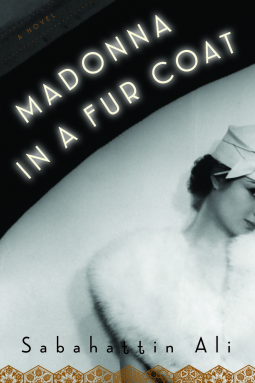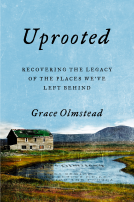
Madonna in a Fur Coat
A Novel
by Sabahattin Ali
This title was previously available on NetGalley and is now archived.
Send NetGalley books directly to your Kindle or Kindle app
1
To read on a Kindle or Kindle app, please add kindle@netgalley.com as an approved email address to receive files in your Amazon account. Click here for step-by-step instructions.
2
Also find your Kindle email address within your Amazon account, and enter it here.
Pub Date Nov 07 2017 | Archive Date Nov 06 2017
Description
A shy young man leaves his home in rural Turkey to learn a trade and discover life in 1920s Berlin. There, amidst the city’s bustling streets, elegant museums, passionate politics, and infamous cabarets, a chance meeting with a beautiful half-Jewish artist transforms him forever. Caught between his desire for freedom from tradition and his yearning to belong, he struggles to hold on to the new life he has found with the woman he loves.
Emotionally powerful, intensely atmospheric, and touchingly profound, Madonna in a Fur Coat is an unforgettable novel about new beginnings, the relentless pull of family ties, and the unfathomable nature of the human soul. First published in 1943, this novel, with its quiet yet insistent defiance of social norms, has been topping best-seller lists in Turkey since 2013.
Advance Praise
“A poignant coming-of-age tale, drenched in disillusionment. The gap between hope and reality, art and ordinary life, has been explored in many other novels, but rarely with the unaffected simplicity of Madonna in a Fur Coat …The translation by Maureen Freely and Alexander Dawe is crisp, capturing Ali’s directness and clarity of language.” —William Armstrong, Times Literary Supplement
“Offsets inter-war Berlin’s decadent dazzle with bouts of shade, murk, and melancholy…recreates a vanished era and dramatizes a doomed relationship, and does so with verve, depth, and poignancy. The result is a miniature masterpiece.” —Malcolm Forbes, The National
“A gorgeously melancholic romance…a cautionary tale certain to beguile.” —Eileen Battersby, Irish Times
“Its prose sparkles with the friction between Eastern conservatism and Western decadence. This is above all a tale of young love and disenchantment, of missed opportunities and passion’s elusive, flickering flame… a little reminiscent of Turgenev’s First Love, with a hero every bit as gauche, and a twist every bit as bitter.” —Toby Lichtig, Financial Times
“Exquisitely translated, perfectly captures the style and rhythm of this gripping love story.” —Selçuk Altun, internationally bestselling author of The Sultan of Byzantium
Available Editions
| EDITION | Other Format |
| ISBN | 9781590518809 |
| PRICE | $17.99 (USD) |
Average rating from 12 members
Featured Reviews
First published in Turkey in 1943; published in translation in Great Britain in 2016; published by Other Press on November 7, 2017
The initial narrator of Madonna in a Fur Coat is newly employed in a Turkish firm when he meets Raif Efendi, who translates the firm’s documents from Turkish to German. Raif responds to hostility and derision with “unwavering serenity” and calculated isolation. His children and siblings show him little respect because his earnings are meager. Raif responds as if disdain is his due.
From his sickbed, Raif asks the narrator to destroy a notebook that Raif has been keeping since 1933. The narrator persuades Raif to allow him to read the notebook before chucking it into the stove. The theme of the tragic love story that Raif tells in the notebook has to do with the cruelness of fate, the burden we share of accepting the accidents of life that are thrust upon us.
Raif’s story takes him as a boy from a Turkish village to Berlin, where his father has sent him to learn how to make soap. He has little ambition but loves to read. Learning German opens a world of literature that had never been translated into Turkish. Visiting an art exhibition, he is taken by the modernistic self-portrait by Maria Puder of a woman in a fur coat.
Naturally, Raif’s notebook tells the story of meeting the artist and their odd friendship — odd because Maria hates men, hates their arrogant pride and entitlement, and conditions her friendship with Raif on never being asked for anything. But Maria senses an innocence in Raif. He seems like a little girl (a judgment that Raif’s father also bestowed, to Raif’s consternation), and is thus the kind of man she might befriend.
Raif, who has always “shied away from human company, never sharing my thoughts with a soul,” feels overwhelmed by his unspent passion for Maria. His conviction that life has no meaning is suddenly challenged by the meaning he finds in his chaste encounters with Maria as he experiences the thrill of finally being understood. Yet Maria believes that solitude is the essence of life, that “all unions are based on falsehood,” that we construct the partner or friend we want rather than seeing them in their reality, and then flee when the reality replaces the construct. For all their similarities, Raif and Maria have different opinions about love that place a barrier between them.
While the novel describes Raif’s evolving feelings, its focus is on Raif’s philosophy of life. Raif believes that no woman has ever loved him and none ever will because women are incapable of true love. “Instead, they ached for the unattainable — the opportunities missed, the salve that their broken hearts longed for — thereby mistaking their yearnings for love.” But Raif’s peceptions and beliefs change often, sometimes daily, sometimes hourly. Change is Raif’s only constant despite his puzzlement with Maria, who makes a virtue of her inconsistency, telling Raif “that’s just the way I am … one day like this, another day like that.” At the same time, the story is about a man who understands the inevitably of change but is incapable of coping with it, a man whose will to believe in himself is irreparably broken.
As the novel moves to its conclusion, it becomes a story of tragic fate, and it is Raif’s reaction to his fate that defines the rest of his existence. Rather than spoiling the story by revealing its details (the resolution has elements of a soap opera), I’ll highlight some of Sabahattin Ali’s quotable prose:
“Nothing grieves me more than seeing someone who has given up on the world being forced to smile.”
“But isn’t this how souls come together, by holding another’s every idea to be true and making it their own?”
“How painful it is, after thinking that a woman has given us everything, to see that in truth she has given us nothing — to see that instead of having drawn her closer, she is farther away than ever!”
“The logic in our minds has always been at odds with the logic of life.”
“For a brief while, a woman had pulled me out of listless lethargy; she had taught me that I was a man, or rather, a human being; she had shown me that the world was not as absurd as I had previously thought and that I had the capacity for joy.”
Although set in Turkey and Berlin, the story has no boundaries. Its themes are relevant to any time or culture. I might not recommend the story for its plot, but its insight into human nature, its exceptional characterization, and its elegant prose make the novel a standout tragedy.
RECOMMENDED









